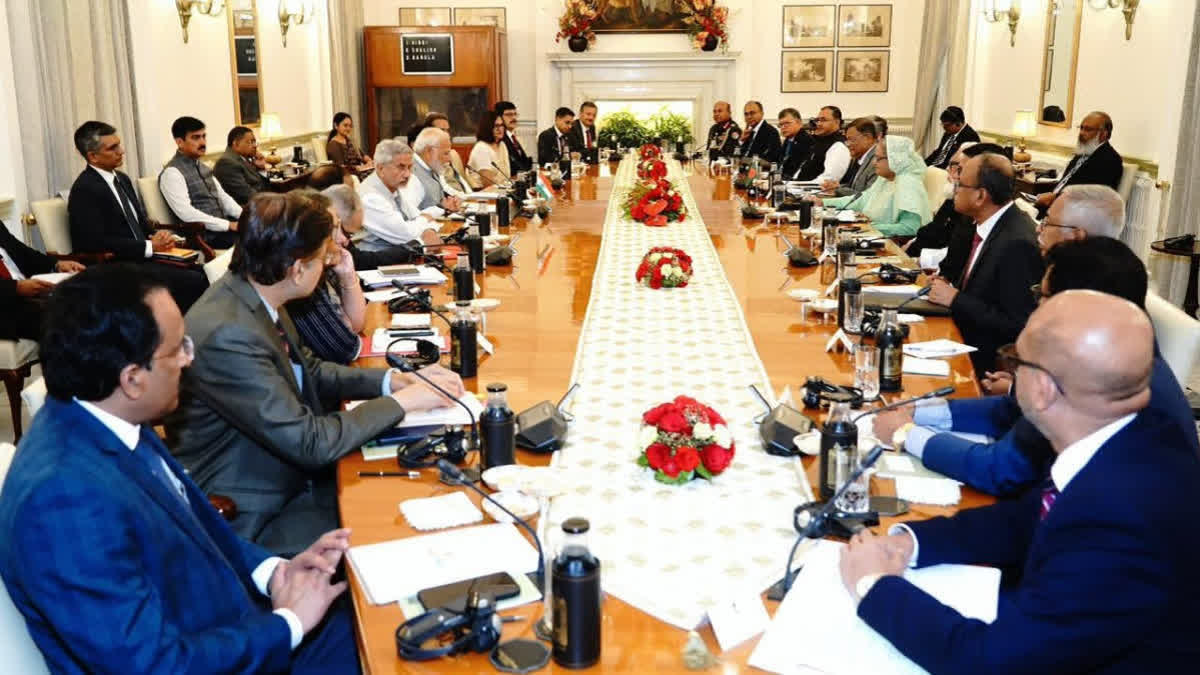New Delhi:China’s assertion that it is open to accept any decision Bangladesh takes on the Teesta River Comprehensive Management and Restoration Project (TRCMRP) should be welcome news for Dhaka ahead of Prime Minister Sheikh Hasina’a visit to Beijing next week.
The Chinese statement comes in the wake of India showing interest in the project and announcing that it will send a technical team to do a feasibility study. India announced this decision during Hasina’s visit to New Delhi last month.
Addressing the media in Dhaka on Thursday, Chinese Ambassador to Bangladesh Yao Wen said that his country is open to any decision Bangladesh takes on the TRCMRP as long as it helps Dhaka maintain good relations with its neighbours.
“We are open as long as it will be conducive for Bangladesh,” The Dhaka Tribune quoted Yao as saying. “China is open. It’s purely on Bangladesh to decide what to do at the next stage.”
Asked whether China would be willing to work with India on the project, Yao said: “"I said it’s purely decided by Bangladesh. We are open. We want to see Bangladesh have good relations with neighbouring countries, with other countries. You know, it is a success of your national foreign policy. So we want to see good relations. And also we want our relations to be playing a positive role and be willed positively by the other countries. So that is win-win cooperation and will benefit all parties.”
It worth mentioning here that, at the request of Bangladesh, China did a feasibility study to address the persistent water crisis of the Teesta River. The Chinese power corporation submitted the TRCMRP report, which was subsequently approved by the Bangladeshi authorities. China also offered a $1-billion line of credit to Bangladesh to implement the project.
So, what exactly is the TRCMRP?
The Teesta River, one of the major transboundary rivers in the region, flows through the Indian states of Sikkim and West Bengal before entering Bangladesh. Out of its total length of 414 km, the Teesta River flows for about 151 km through Sikkim, nearly 142 km through West Bengal, and the final 121 km through Bangladesh.
It plays a crucial role in the agriculture and livelihoods of millions of people in both countries. However, India and Bangladesh have been locked in a dispute over the sharing of the river’s waters mainly due to objections raised by West Bengal Chief Minister Mamata Banerjee.
The Teesta River is vital for irrigation, drinking water, and sustenance of biodiversity in the regions it flows through. However, the river faces significant challenges such as seasonal water scarcity, sedimentation, and pollution, making its conservation and management a critical issue for the Bangladeshi government.
The TRCMRP was initiated by the Bangladesh government for water resource management, flood control and management, ecosystem restoration, pollution control and community engagement. The objectives include ensuring a sustainable and equitable distribution of water for agricultural, industrial, and domestic use; implementing measures to prevent floods during the monsoon season and managing water flow during the dry season; restoring the riverine ecosystem to support biodiversity and maintain ecological balance; reducing pollution levels through strict regulations and promoting cleaner production practices in industries; and involving local communities in conservation efforts and ensuring their livelihood is supported through sustainable practices.
Why should India be concerned about China’s involvement in the TRCMRP?
China’s influence in Bangladesh affects the broader regional power dynamics, challenging India’s traditional sphere of influence in South Asia. As Bangladesh grows closer to China, India’s influence in Dhaka may diminish. This shift could impact regional cooperation initiatives led by India and affect India’s strategic interests in South Asia.
The growing China-Bangladesh relationship might encourage other South Asian countries to seek closer ties with China, further diluting India’s influence in the region. This could lead to a more fragmented regional order, with China emerging as a dominant player.
India is presumed to have a reservation over China’s involvement in a major project like the TRCMRP near its strategic Siliguri Corridor, also known as the Chicken’s Neck connecting northeastern India with the rest of the country. The corridor is close to the India-China border. Bangladesh’s foreign ministry has also said that Dhaka would take into cognizance the geopolitical issues in proceeding with the proposal.
